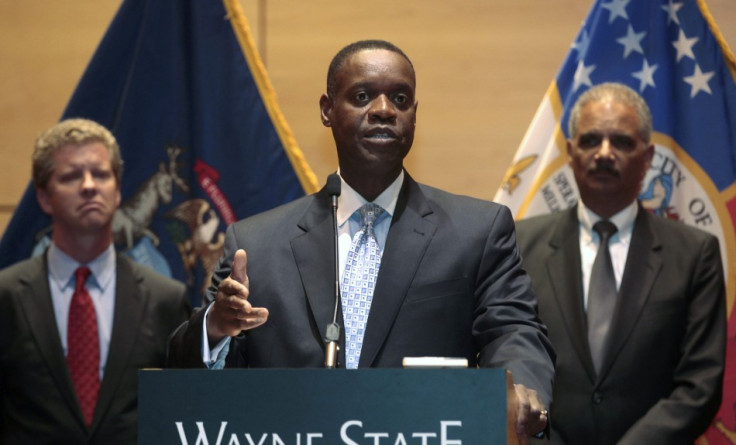Detroit Bankruptcy: Protecting City's Pensions May Breach US Bankruptcy Code

Detroit's bankruptcy trial will begin on 23 October and US Bankruptcy Judge Steven Rhodes will hear potential objections to the city's eligibility for Chapter 9 bankruptcy protection.
Detroit, the largest city in US history to file for municipal bankruptcy, must prove that it is insolvent and that it has sincerely attempted to negotiate with its creditors, or that negotiations were not viable owing to a large number of creditors.
The trial will also examine whether Michigan Governor Rick Snyder's decision to force Detroit into Chapter 9 insolvency has put employee pensions at risk, the New York Times reported.
Michigan's Constitution protects the pensions of the 23,000 retired Detroit city workers.
However, the city's lead bankruptcy lawyer, Bruce Bennett, argued that the federal bankruptcy court can impair pensions and contracts despite state constitutional protections.
Judge Rhodes is expected to rule on the pensions issue at the end of the eligibility trial, reported Reuters.
If the court does conclude that the city qualifies for bankruptcy, Detroit would have until 1 March 2014 to file a reorganisation plan, according to Judge Rhodes' schedule.
"The purpose of this Chapter 9 case is to adjust the city's debts," Bennett said. "That means all of the debts."
"You can say pensions cannot be impaired, but the reality is, at the end of the day, there isn't enough money to pay them," Bennett added.
Earlier, Rhodes said that affording any special protections to Detroit's pension funds would breach federal bankruptcy law.
The US Bankruptcy Code would not provide special protection to pensions because, "It gives a priority to one unsecured creditor over all the others. Or one group of unsecured creditors, over all the others," Rhodes said on 21 October, at the end of a three-day hearing on legal issues in the case.
Emergency Manager Law
Rhodes will also hear arguments about why a spending provision was added to Michigan's emergency manager law.
Lynn Brimer, the lawyer representing the Retired Detroit Police Members Association, argued that the state legislature added the spending provision to prevent another referendum on the law. Michigan forbids referendums on laws that include an appropriation.
However, the state said the provision was added to pay for the costs attached to the law.
Long List of Creditors
The list of creditors, including present and past workers, spans 3,504 pages. The largest in that pack are two pension funds that have claims worth $3.74bn.
Among the top 20 creditors are bondholders of $1.47bn in certificates of participation (COPs) that the city sold for its pension funds, alongside several hundred million dollars' worth of general obligation bonds, according to the report.
Municipal Bankruptcy
Detroit owes $18.5bn (£11.5bn, €13.5bn) to thousands of creditors.
It follows three California cities, Stockton, Mammoth Lakes and San Bernardino, all of which filed for bankruptcy in 2012. In 2011, the city of Harrisburg in Pennsylvania tried to file for bankruptcy but the move was turned down because it was deemed illegal.
The timeframes proposed by Rhodes and Detroit's state-appointed emergency manager, Kevyn Orr, would see the city moving through bankruptcy court more quickly than Stockton.
Stockton listed debts of around $1bn when it filed for bankruptcy protection in June 2012. However, the city took about a year to pass through the eligibility phase alone.
© Copyright IBTimes 2024. All rights reserved.









